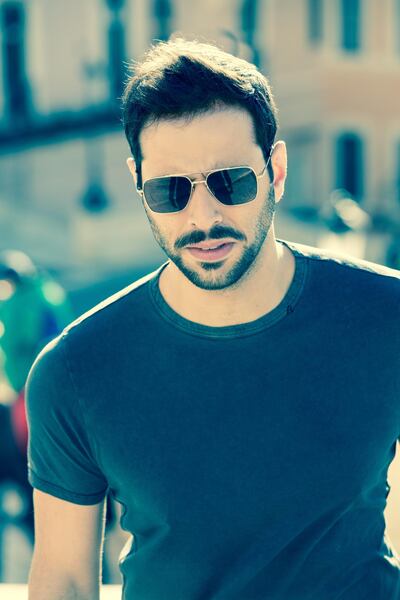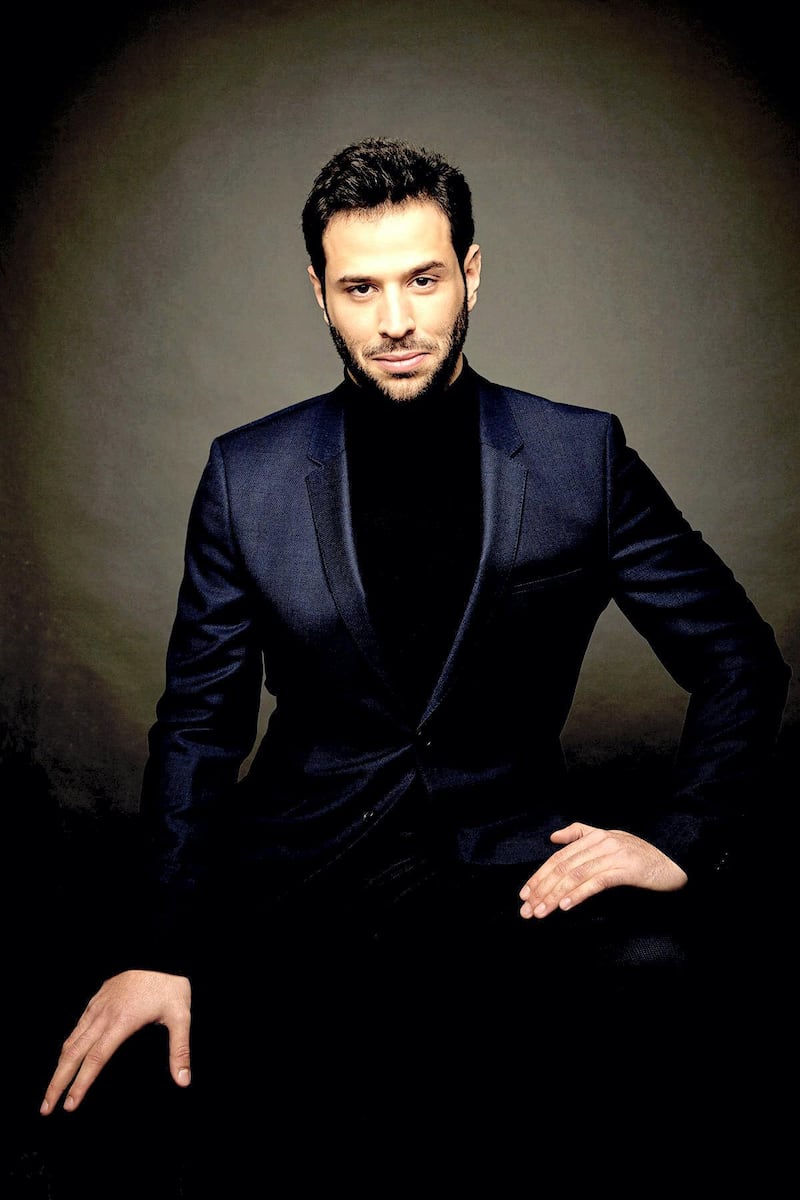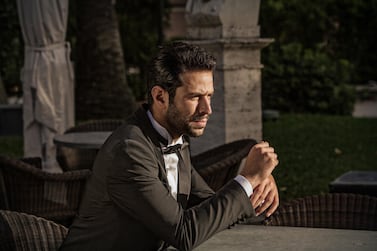Second albums are always a tricky business. As a musician, you can either consolidate your established sound, or risk alienating your fans by going in a bold new direction.
With his new release, Show Me the Light, Omar Kamal manages to do both. Traversing a range of styles, from jazz and Arabic folk to Mediterranean balladry and even one decidedly prog-rock tune, the new album is thrillingly varied. More importantly, it represents a more honest portrait of a singer whose smooth baritone and jazz approach had him initially typecast by the music industry as the "Palestinian Frank Sinatra".
While still enamoured by Ol' Blue Eyes, Kamal says he is cut from a different cloth. "I think it was a bit of a personal challenge of mine and I understand it. I wore the suits and sang jazz standards, and if I had stuck with that direction, I would have probably made a 10-year career out of it," he tells me ahead of his Dubai Opera performance on Sunday, December 15.
"But you grow and develop, and along the way you meet people and gain fans who believe in you enough to create music with your own identity. This new album is not so much a total reaction to being labelled as a new Sinatra, but a chance to tell my own story." And it is an intriguing one. Kamal joins a long list of Palestinian artists, such as crooner Mohammed Assaf, who managed to turn the adversity of their homeland into personal triumph.
Growing up in Nablus in the midst of the Second Intifada, Kamal was only eight years old when he took up piano at home as a form of respite. Encouraged by his music-loving parents and his early obsession with Sinatra, Kamal eventually relocated to Cardiff where, as well as obtaining an engineering degree, he performed regularly with a series of jazz groups across the UK.
His live shows, in addition to a string of YouTube recordings of regional classics, such as Fairuz's Li Beirut and the patriotic anthem Sarkhat Mawtini (My Nation's Outcry), as well as jazz standards by Dean Martin and Sinatra's track What Are You Doing for the Rest of Your Life?, eventually garnered the attention of Dubai-headquartered music label Sony Music Middle East, which signed him up.

The Hollywood ending comes with Kamal recording his 2017 debut album Serenade in Capital Studios, Los Angeles. This was where Sinatra recorded more than a dozen of his seminal albums, including 1954's Songs for Young Lovers.
While grateful for the experience, Kamal admits that the first album wasn't entirely satisfying. "Serenade was predominantly about the presentation and the flavour of my voice," he says. "The production on it was also a bit rushed and perhaps didn't have the depth that I wanted it to have."
It is a realisation that Kamal, and maybe his supporters, gleaned on the road. Anyone at his sold-out Emirates Palace show as part of last year's Abu Dhabi Festival would have discovered that he is a different beast on stage.
In concert, his is a more freewheeling style, as he blends various eastern and western styles to create a more accurate reflection of what it is to be a modern Arab artist today. With that in mind, and with the financial support of the Abu Dhabi Festival, he delved headlong into recording his second album.
The suit was off, so to speak. As executive producer, he corralled a bunch of great songwriters, from Lebanese composer Michel Fadel and master lyricist Nizar Francis to the Turkish Strings and United Strings of Europe ensemble, to create a varied sound.
The fusion element of Kamal's live shows is well rendered in Atyaf El Leil and Um Kulthum Swings. The latter track starts off with the famous introductory strings of Kulthum's 1970 song Fakarouni, before the sound of a big jazz band crashes through to take the song in a whole other direction, all while retaining Fakarouni's melodic motif. Then there's the detour to South America with Tango de Armour. Inspired by a Chilean poem, Kamal delivers the words through a vibrant tango number. More impressive perhaps than his singing in Spanish, is Kamal pushing his voice up a few notches towards healthy tenor territory.
Which all sets us up for the album's most daring track, Wicked Dreams. The inventive arrangements continually wrong-foot you, until he delivers a heart-rending high-pitched vocal in the chorus. It sounds euphoric, and evidence, if needed, of an artist just happy being himself.
"This is me at my most experimental," Kamal says. "I remember one person heard the song before the album came out and they said: 'There are seven songs in one there; are you sure you want listeners to work so hard?' But I couldn't help it. The song is actually three minutes long, but it had some ideas that I want to express and I am glad that it came out that way."
With such material on hand, his Dubai show promises to be immersive. He may still wear the suit, but audiences will be treated to a forward-thinking Kamal, rather than one content to just retread the sounds of old. "You owe it to the audience that believes in you to give them something that's actually different at times," he says. "I don't know how people in Dubai will relate to the new songs with their different sounds, but what I will do is give a big chunk of myself on stage. This is more special than giving people just what they want."
Omar Kamal performs at Dubai Opera on Sunday, December 15. Tickets from Dh195;
www.dubaiopera.com







